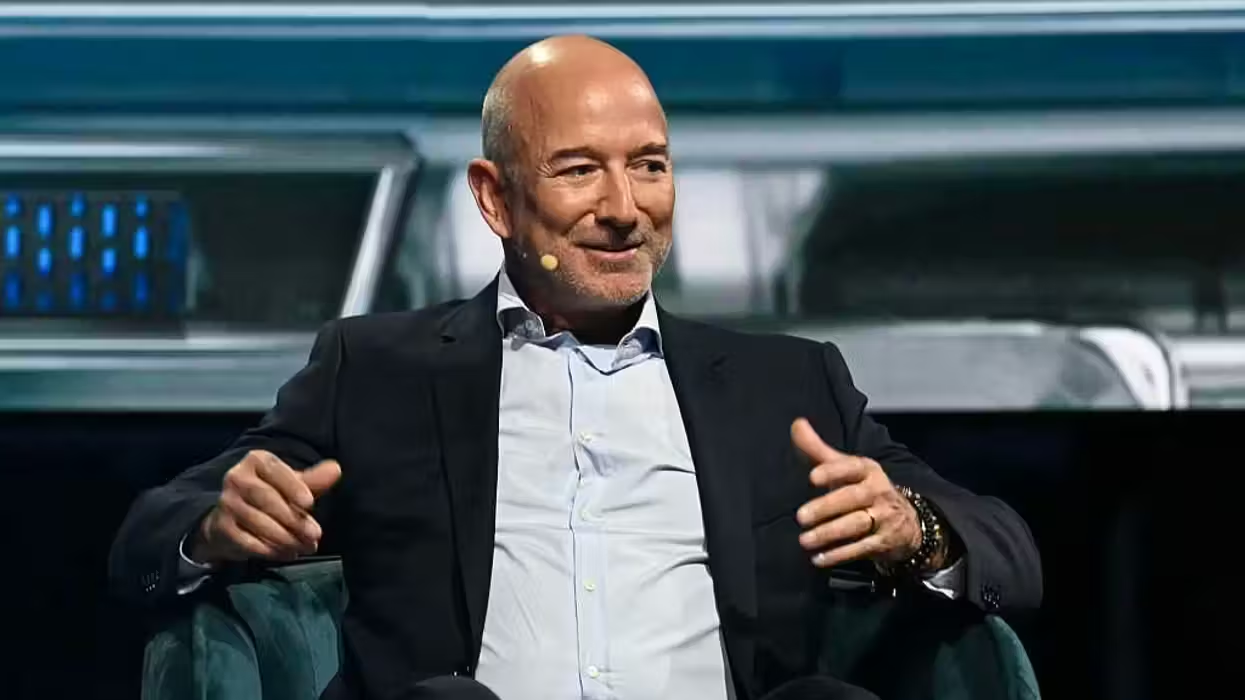
© 2026 Blaze Media LLC. All rights reserved.
"We’re not going to outwardly proselytize . . . but we hope and pray that they feel the love of God when they come into our stores."
Did you know that companies like Forever21 and In-N-Out Burger place Bible verse John 3:16 on the bottom of their bags and cups?
It is called “faith-based marketing" and the market for it is enormous and profitable.
“One of the things that makes the faith-based market unique is they [the target market] gather weekly as a group to share and fellowship with each other,” said Greg Stielstra, founder of PyroMarketing, a social media marketing agency, in a recent FOX Business report.
Any businessman will tell you that word-of-mouth promotion is crucial for success. Consumers are much more likely to make a purchase based on the recommendation of a friend rather than an ad placed in a magazine or on television.
“For Christians in America, their faith in Jesus Christ is a defining characteristic, which makes word-of-mouth in that community more powerful than it would be for other communities,” Stielstra said.
Paul Jankowski, CEO of Access Brand Strategies agreed that “faith as a core value in many Americans’ lives cannot be understated.”
“Be cognizant of the role of faith, specifically, may play in the lives of this massive consumer group,” he said.
Stielstra claims that the success of The Purpose Driven Life, which is the fastest-selling hardcover book in American history, is because of the strength of the faith-based community.
“By lighting that fuse in a number of key places, it was possible to reach almost everyone because that community is so tight.”
How did they market that book to the community? According to FOX Business:
A 40-day marketing campaign for the book included having ministers preach six consecutive sermons about the book, with worshipers reading a chapter a day for 40 days. Readers were given the entire book, instead of just a sampling, and they would meet once a week to discuss it. Word of the book spread like wildfire through faith-based communities.
“It created an army of 400,000 customer evangelists who had a deep familiarity and a positive experience with the book, and that turned into irrepressible word of mouth,” Stielstra said.
“It wasn’t valuing them for their purchase potential. What it unleashed was their promotional potential,” he added.
Christian Brothers Automotive is a perfect example of that "promotional potential."

CEO Mark Carr founded the company in 1982 after he was asked to help start an automotive repair service. Carr named the company Christian Brothers Automotive because it was "literally opened by two brothers in Christ."
What started out as a single repair shop outside of Houston, has since evolved into an operation that boasts of 88 franchises in 11 states, with another 32 under construction or getting ready to open, according their website.
Some locations have Bibles in the waiting rooms (along with the other obligatory reading material) and some franchisees place prayer request books in the lobby.
“We’re not going to outwardly proselytize . . . but we hope and pray that they feel the love of God when they come into our stores,” said Josh Wall, vice president of franchise development.
Although most of the stores are Christian, the company has never specifically focused on the Christian market alone.
“We’re not targeting faith-based customers, per se,” Wall said. “What we’re doing . . . is just saying, ‘we want to be in a business that glorifies God in everything we do, by providing ethical and excellent automotive repair for our customers.’ That’s something that’s not lip service – that’s who we are.”
However, Christian Brothers Automotive has purposely refrained from advertising themselves as an exclusively religious business.
“We don’t want to offend anyone or create a preconceived notion before they walk in the door,” Wall said.
Some of its strongest franchise locations are in areas dense with people who identify with Eastern religions, not Christianity, according to Wall.
“Overwhelmingly, I would say it typically doesn’t offend non-evangelical Christians because they just want to be taken care of very well. We service people of all different faith backgrounds."
How does a business get into faith-based marketing? Stielstra recommends becoming a trusted name in churches.
"That may mean sitting down with local pastors and presenting your product and explaining how it can be beneficial to his or her congregation," says the FOX Business report.
“Let them speak back to you. Pastors are shepherds of their flock and shepherds protect their flock,” Stielstra said. “If you show how your product is genuinely helpful, they would be a great consultant.”
“If you can identify yourself as being a Christian and that your business is guided by Christian principles, other Christians will want to reward you and give them your business,” Stielstra said.
“Other businesses can win patronage by Christians by saying there are aligned with the same values – that’s stopping short of sharing your faith, but there are at least a certain set of standards by which we all adhere,” he added.
Faith-based marketing has two specific advantages: It allows individuals to practice their faith in the workplace and it is financially beneficial.
Win-win.
Want to leave a tip?
We answer to you. Help keep our content free of advertisers and big tech censorship by leaving a tip today.
Want to join the conversation?
Already a subscriber?
more stories
Sign up for the Blaze newsletter
By signing up, you agree to our Privacy Policy and Terms of Use, and agree to receive content that may sometimes include advertisements. You may opt out at any time.
Related Content
© 2026 Blaze Media LLC. All rights reserved.
Get the stories that matter most delivered directly to your inbox.
By signing up, you agree to our Privacy Policy and Terms of Use, and agree to receive content that may sometimes include advertisements. You may opt out at any time.






